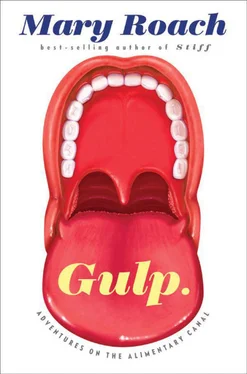Colonic inertia has an even lower profile than anal cancer. And I doubt you’ll be seeing bus posters about defecation-associated sudden death any time soon. I imagine the stigma discourages open talk among doctors and patients and people at risk. As Nichopoulos wrote in The King and Dr. Nick , “Nothing could have been more embarrassing than having people whispering about his bowel difficulties.”
But I have questions. At what point does constipation cross over from unpleasant to life-threatening? How hard would you have to be pushing? How exactly does it kill you? Should certain people be taking stool softeners the way others take baby aspirin?
I know one person who doesn’t mind talking about it.
GEORGE NICHOPOULOS LIVES in a leafy Memphis neighborhood of widely spaced homes, on a bend in the road where once or twice a year a drunk fails to notice the curve and crashes his car in the yard of the house across the street. Elvis Presley had the house designed and built as a present for Nichopoulos and his family in the 1970s. You can see that in its day it was modish and luxe: the peaked ceiling with exposed rafters, the massive stone fireplace that divides the open floor plan of the downstairs, the backyard swimming pool.
Nichopoulos escorts me to the sofa. He and his wife, Edna, sit in armchairs to my left and right. The furniture is positioned far enough apart that I hand the doctor my tape recorder, for fear it won’t otherwise pick up his words. The coffee table is just out of reach, so that each time I pick up or set down my cup, I have to rise partway from my seat. It’s as though the family had been at a loss to fill the expanses of a home designed by someone with far more extravagant taste.
Nichopoulos is recovering from hip surgery. Although he’s in his eighties and using a mobility scooter to get around, he doesn’t appear much diminished. He’s tan and spiffed up, having just arrived home from an appearance at an Elvis Week memorial event. His hair is white, but it is not the sparse, scalp-clinging strands of the nursing-home frail. His stands firm and frames his head like an aura.
I open a folder and pass around the pictures I have of J.W. and of K.’s megacolon resting on its bed. No documents were released from Presley’s autopsy, but Nichopoulos has a photo of a similarly proportioned megacolon. He opens his laptop and turns it to face me. I get up to set down my coffee and cross the divide. In the photograph, a surgeon in blue scrubs holds a limp, bloody colon above his head in the triumphant, two-handed pose of an athlete with a trophy cup. Nichopoulos says he thought about including the photo in his book, so people would have a sense of what Presley had been dealing with. “But we knew that Priscilla was not going to allow us to put this in there.”
“She goes and puts her nose in everything.” A dispatch from the distant island nation of Edna.
I ask Nichopoulos to talk about precisely, medically, what caused Presley’s death.
“The night he died he was bigger than usual,” he begins. Depending on how long it had been since Presley had managed to empty himself, his girth fluctuated between big and stupendous. He sometimes appeared to be gaining or losing twenty pounds from one performance to the next. “He wanted to get rid of his gut that night. He was pushing and pushing. Holding his breath.” As the constipated do. The technical term is the Valsalva maneuver. Let’s have Antonio Valsalva, writing in 1704, describe it: “If the glottis be closed after a deep inspiration and a strenuous and prolonged expiratory effort be made, such pressure can be extended upon the heart and intrathoracic vessels that the movement and flow of the blood are temporarily arrested.” After a momentary spike, the heart rate and blood pressure plunge as the pressure squeezes off the flow of blood. This is followed by what one paper termed the “after-fling”—the body taking emergency measures to get things back up to speed.
The body’s response to this wild, Valsalvic seesawing of the vital signs can throw off the electrical rhythm of the heart. The resulting arrhythmia can be fatal. This is especially likely to happen in someone, like Elvis, with a compromised heart. Fatal arrhythmia is the cause of death listed on Presley’s autopsy report. “Probably every physician practicing emergency medicine has encountered tragic cases of sudden death in the lavatory,” writes B. A. Sikirov in “Cardio-vascular Events at Defecation: Are They Unavoidable?”
In 1950, a group of University of Cincinnati physicians documented the phenomenon—rather recklessly, I thought—by monitoring the heart rate of fifty subjects, half of them with heart disease, and asking them to “take a deep breath, hold it, and strain down vigorously as if endeavoring to have a bowel movement.” No one died, but they could have. It happens often enough that stool softeners are administered as a matter of course on coronary-care wards.
Making matters riskier: bed pans! “The notorious frequency of sudden and unexpected deaths of patients while using bed pans in hospitals has been commented upon for many years,” wrote the Cincinnati doctors. Notorious enough for a term to be coined: “bed pan death.” Lying flat is as counterproductive a posture as squatting is productive. Squatting passively increases the pressure on the rectum. It does the pushing for you. It also, Sikirov discovered in his study “Straining Forces at Bowel Elimination,” makes the task easier by straightening out the recto-anal angle, which I read as “angel.” The overall result, purrs Sikirov, is “smooth bowel elimination with only minimal straining.”
The other mode of defecation-associated sudden death is pulmonary embolism. The surge of blood when the person relaxes can dislodge a clot in a large blood vessel. When the clot reaches the lungs it can get stuck, causing a fatal blockage, or embolism. A 1991 study found that over a three-year period, 25 percent of the deaths from pulmonary embolism at one Colorado hospital were “defecation-associated.” This study’s authors took issue with Sikirov over squatting, claiming that descending and rising from a squat raises the risk of dislodging clots in the deep veins of the thighs.
Presley was given laxatives and enemas on an almost daily basis. “I carried around three or four boxes of Fleets,” Nichopoulos says, referring to the enema brand and recalling his days on tour with Presley. Getting the timing right was, he says, “a difficult balancing act.” Presley sometimes did two shows a day, and Nichopoulos had to schedule the administration such that the treatments didn’t kick in while the singer was on stage. This was the low point of Presley’s career: the bulky jumpsuit and isosceles sideburns era. His colon had expanded so dramatically that it crowded his diaphragm and had begun to compromise his breathing and singing. Beneath the polyester and girth, it was hard to see the man who had performed on the stage of the Ed Sullivan Theater, his moves so loose and frankly sexual that the producers had ordered him filmed from the waist up. Now there was a different reason to do so. “Sometimes right in the middle of the performance, he’d think, ‘I’m passing a little gas,’ and it wouldn’t be gas,” Nichopoulos says quietly. “And he’d have to get off stage and change clothes.”
People who saw the Graceland master bathroom would remark on its extravagance—a TV set! Telephones! A cushioned seat!—but the décor was in equal part a reflection of how much time was spent there. “He would be thirty minutes, an hour, in there at a time,” Nichopoulos says. “He had a lot of books in there.” Constipation ran Presley’s life. Even his famous motto TCB—“Taking Care of Business”—sounds like a reference to bathroom matters. (The TCB oath touched on self-respect, respect for fellow men, body conditioning, mental conditioning, meditation, and, according to a group tell-all by Elvis’s entourage, “freedom from constipation.”)
Читать дальше












